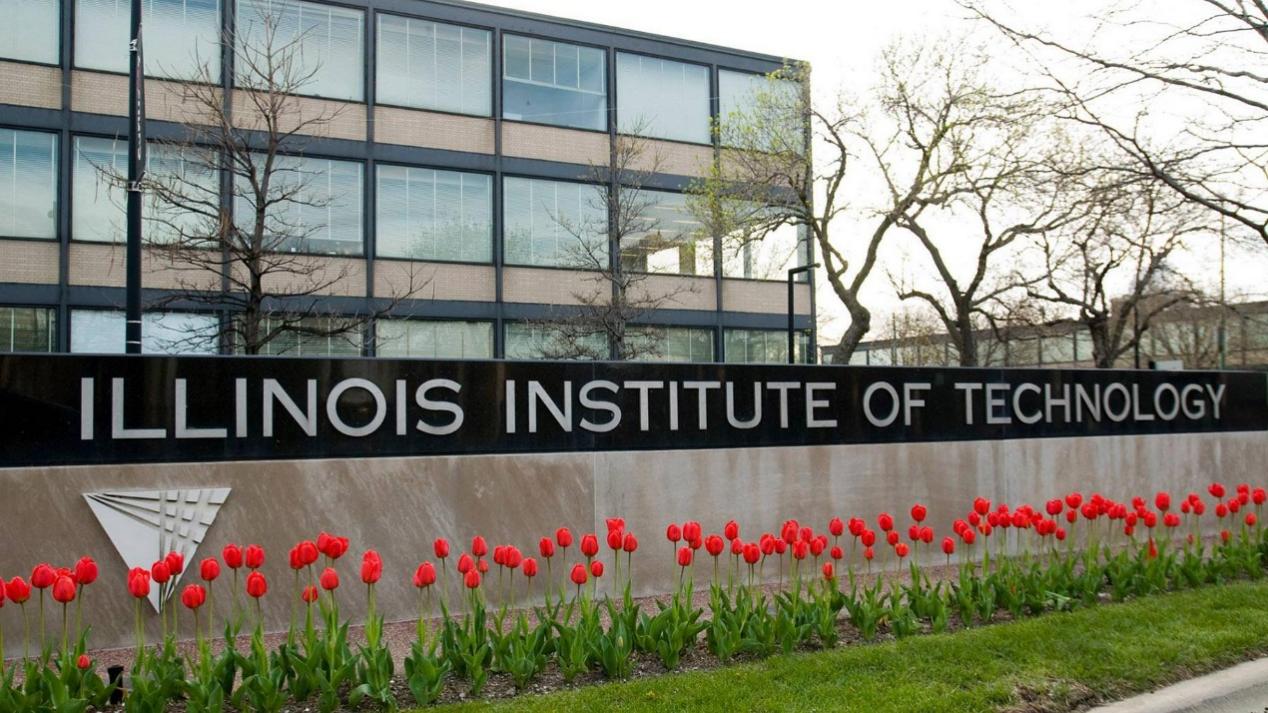Workshop Title:
Modeling Software Architecture
Date:
May 11th, 2024 (CDT)
Organizer:
ITM Department, Illinois Institute of Technology, USA
Keywords:
- Software Architecture
- Modeling
- UML
- Domain-Specific Languages
- Formal Methods
- Architectural Patterns
- Architectural Styles
- Architectural Frameworks
- Quality Attributes
- Agile Development
Workshop Chair:
Personal Bio:
Dr. Omar's Academic career has consistently focused on applied, industry-relevant cyber security, Data Analytics, machine learning, application of AI to cyber security and digital forensics research and education that delivers real-world results. He brings a unique combination of industry experience as well as teaching experience gained from teaching across different cultures and parts of the world. He has an established self-supporting program in machine learning application to cyber security. He has established a respectable research record in AI and cyber security exemplified in the dozens of published papers and book chapters that have gained recognition among researchers and practitioners (more than 272 Google scholar citations thus far). He is actively involved in graduate as well as undergraduate machine learning education including curriculum development and assessment.
Dr. Omar has recently published two books with Springer on Machine Learning and Cyber Security and has also published research with IEEE conference on Sematic Computing. Additionally, Dr. Omar holds numerous industry certifications including Comptia Sec+, ISACA CDPSE, EC-Council Certified Ethical Hacker, and SANS Advanced Smartphone Forensics Analyst.
Dr. Omar has been very active and productive in both academia as well as the industry and he is currently serving as an associate professor of cyber security at Illinois Institute of Technology.
Workshop Description:
Background:
Modeling software architecture provides several benefits. It facilitates early detection and resolution of design issues, as architectural decisions made during the modeling phase can be analyzed and evaluated before implementation. By capturing key architectural elements and relationships, software architects can make informed design choices and align the architecture with the project's goals and requirements. Additionally, software architecture models serve as documentation, aiding in system understanding, maintenance, and evolution.
The workshop on "Modeling Software Architecture" aims to equip participants with the necessary knowledge and skills to create effective software architecture models. It covers various modeling techniques, notations, and languages that enable architects to represent and communicate the system's architecture effectively. Furthermore, the workshop addresses the use of architectural patterns and frameworks, as well as techniques for analyzing and evaluating software architectures.
By delving into the background and principles of software architecture modeling, this workshop provides participants with a solid foundation to create well-designed and robust software systems. It empowers them to tackle the challenges associated with complex software projects, enabling them to make informed decisions, mitigate risks, and ultimately deliver high-quality software products.
Goal/Rationale:
The workshop on "Modeling Software Architecture" aims to achieve several goals.
Firstly, it seeks to provide participants with a comprehensive understanding of the principles and concepts underlying software architecture modeling. By exploring various modeling techniques, notations, and languages, the workshop aims to enhance participants' proficiency in creating accurate and effective software architecture models.
Secondly, the workshop aims to familiarize participants with architectural patterns, frameworks, and best practices. It equips them with the knowledge and tools to leverage existing architectural solutions and apply them to real-world software projects.
Additionally, the workshop emphasizes the importance of analysis and evaluation in software architecture modeling. Participants will learn techniques for assessing the quality attributes of a software architecture, such as performance, scalability, and maintainability, to ensure that the architecture meets the desired criteria.
Furthermore, the workshop encourages collaborative learning and exchange of ideas among participants. Through hands-on exercises, group discussions, and case studies, participants will have the opportunity to apply their knowledge and engage in practical problem-solving related to software architecture modeling.
Overall, the goals of the workshop revolve around empowering participants with the skills, knowledge, and confidence to effectively model software architecture, make informed design decisions, and contribute to the development of robust and successful software systems.
Scope and Information for participants
The scope of the workshop on "Modeling Software Architecture" encompasses a wide range of topics related to software architecture modeling. Participants will delve into various modeling techniques, such as UML (Unified Modeling Language), domain- specific languages, and formal methods, to capture different aspects of software architecture.
The workshop covers both conceptual and practical aspects of software architecture modeling. Participants will learn about architectural patterns, styles, and frameworks that can be applied to different types of software systems. They will also gain insights into the process of creating, documenting, and communicating software architecture models.
Additionally, the workshop addresses the analysis and evaluation of software architecture models. Participants will explore techniques for assessing architectural quality attributes, conducting trade-off analysis, and making informed design decisions. The scope extends to the consideration of various software development contexts, including both traditional and modern approaches such as agile and DevOps. Participants will learn how to adapt software architecture modeling techniques to different project constraints and requirements.
Overall, the workshop provides a comprehensive scope that equips participants with the necessary knowledge and skills to effectively model software architecture in diverse software development scenarios.
Highlights:
The "Modeling Software Architecture" workshop focused on essential principles, techniques, and tools necessary for effective software architecture design. Recognizing the critical role of architecture in complex software systems, the workshop aimed to equip participants with the skills to create robust and scalable architectures.
Participants learned various modeling techniques, including architectural styles, notations, and languages, to represent different architectural aspects. Emphasis was placed on capturing architectural decisions, system components, interfaces, and their relationships to ensure a coherent design. The workshop also covered architectural patterns and frameworks, which offered reusable solutions to common design problems and enhanced attributes like modifiability, performance, and security.
Hands-on sessions allowed participants to apply these patterns to real-world scenarios. Additionally, the workshop addressed the analysis and evaluation of software architectures through architectural reviews, inspections, and performance modeling. Participants learned to assess the quality and trade-offs of different architectural alternatives, making informed design decisions.
By the end of the workshop, attendees had a comprehensive understanding of software architecture modeling. They were equipped with practical techniques and tools to design, communicate, and evaluate software architectures, ensuring the creation of robust, scalable systems that met stakeholder needs and aligned with business goals.
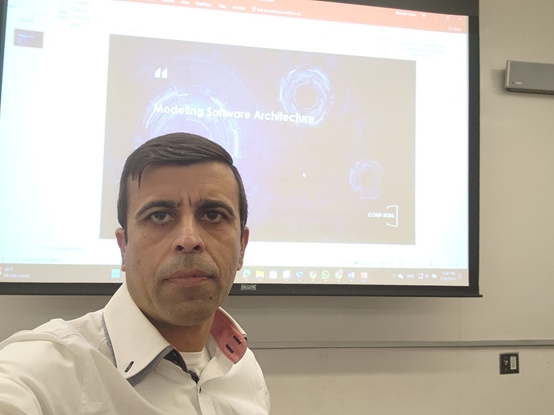
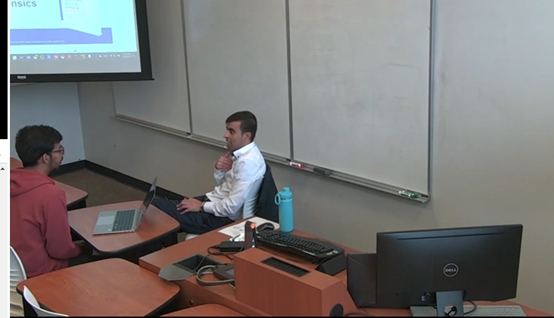
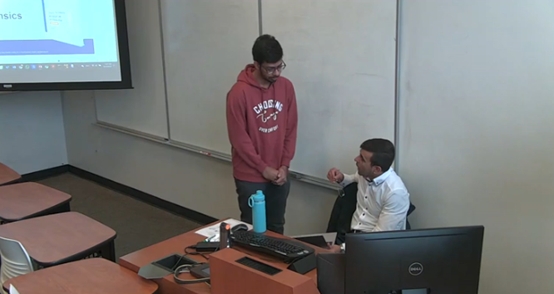
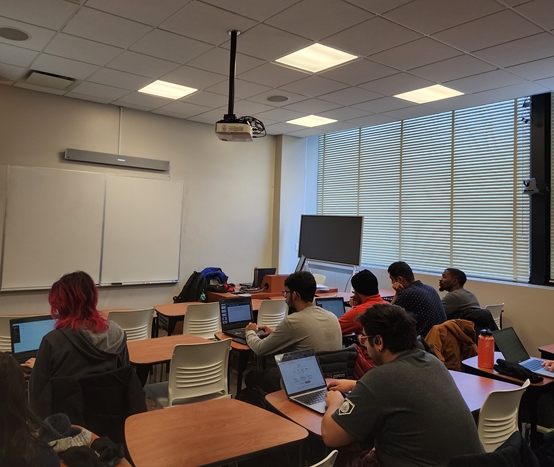
Venue:
Illinois Institute of Technology, 10 W 35th St, Chicago, IL 60616, USA
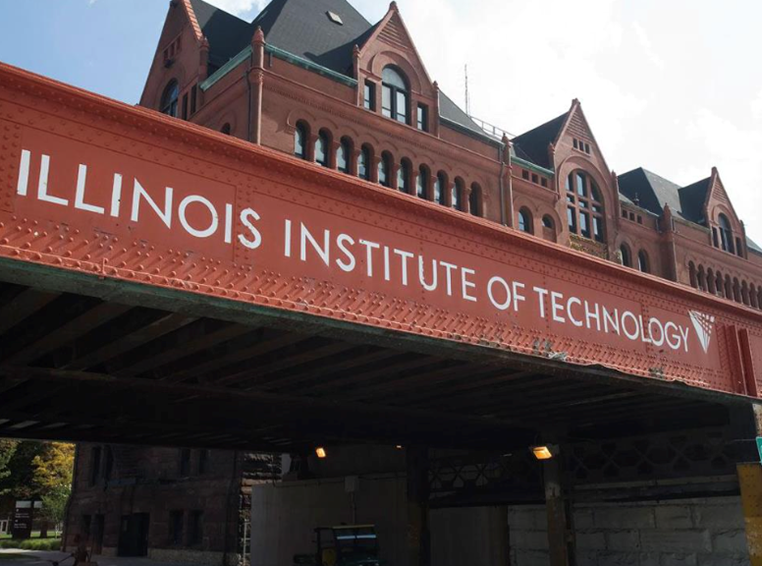
VISA
U.S. Visas (state.gov)In order to ensure the information is correct and up to date, there may be changes which we are not aware of. And different countries have different rules for the visa application. It is always a good idea to check the latest regulations in your country. This page just gives some general information of the visa application.
US Visa Information
The B-1/B-2 visitor visa is for people traveling to the United States temporarily for business (B-1) or for pleasure or medical treatment (B-2). Generally, the B-1 visa is for travelers consulting with business associates; attending scientific, educational, professional, or business conventions/conferences; settling an estate; or negotiating contracts. The B-2 visa is for travel that is recreational in nature, including tourism; visits with friends or relatives; medical treatment; and activities of a fraternal, social, or service nature. Often, the B-1 and B-2 visas are combined and issued as one visa: the B-1/B-2.
Application Items
If you apply for a business/tourist visa, you must pay your $160 application fee and submit the following:
- A Nonimmigrant Visa Electronic Application (DS-160) Form. Visit the DS-160 web page for more information about the DS-160.
- A passport valid for travel to the United States with a validity date at least six months beyond your intended period of stay in the United States (unless country-specific agreements provide exemptions). If more than one person is included in your passport, each person desiring a visa must submit an application.
- One (1) 2 x 2 inches (51 x 51 mm) photograph taken within the last six months.
- If a visa is issued, there may be an additional visa issuance reciprocity fee, depending on your nationality.
In addition to these items, you must present an interview appointment letter confirming that you booked an appointment through this service. You may also bring whatever supporting documents you believe support the information provided to the consular officer.
Supporting Documents
- Invitation letter from business or school.
- Detailed CV or resume including a list of publications.
- Complete itinerary, including all meetings, conferences, and visits; include names, addresses, and telephone numbers of your hosts.
- For other materials, please refer to the U.S. Embassy or Consulate website.
NOTICE:
Should your application be denied, the organizing committee cannot change the decision of visa officer, nor will CONF-SEML engage in discussion or correspondence with the visa application center on behalf of the applicant. The registration fee CANNOT be refunded when the VISA application of individual being denied.
Attend in person:
If you want to attend the workshop on-site, please email the Conference Committee: info@confseml.org.
